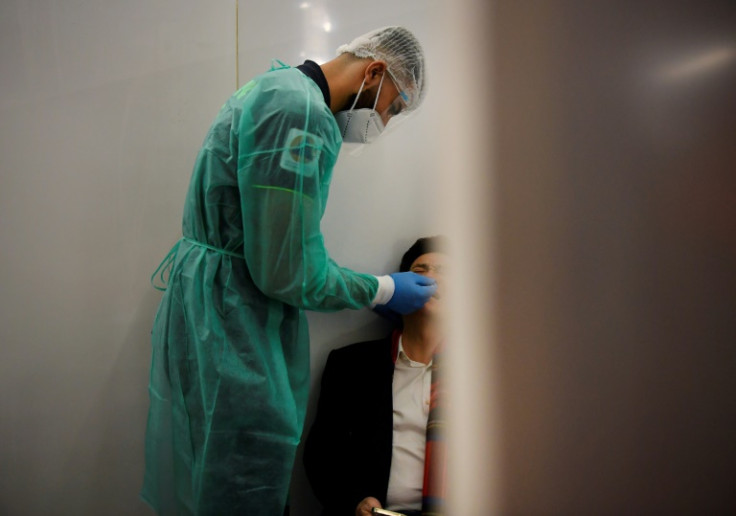US To Ease COVID-19 Testing Requirements On Travelers From China: Report
The U.S. is reportedly rolling back on COVID-19 testing restrictions from Friday on travelers entering the country from China, Hong Kong and Macau.
The U.S., among several other countries such as Japan, had required air travelers from China to have a pre-departure negative COVID test before boarding their flight.
Before the travel restrictions were imposed, China saw nationwide protests toward the end of last year in response to the country's strict zero-COVID policies on residents. The protests led to Beijing lifting the policies in a swift, rapid move. This consequently resulted in a surge in COVID-19 cases in China, according to CNN.
Federal health officials reacted to China's fresh wave of cases by imposing new restrictions and expecting travelers to have proof of a negative COVID-19 test result with them before boarding their flight to the U.S. The announcement in December said the new policy would take effect on Jan. 5.
Currently, the CDC (Centers for Disease Control and Prevention) website, still states there are requirements "for air passengers 2 years of age and older traveling to the United States from China, Hong Kong, or Macau, and those traveling from Seoul, Toronto, and Vancouver who have been in China, Hong Kong, or Macau in the past 10 days."
"These passengers, regardless of citizenship or vaccination status, are required to show a negative COVID-19 test result taken no more than 2 days before their flight departs," the website reads.
Reports now say that these restrictions will be lifted months after they were announced.
The White House will finalize the plan Tuesday, and the testing requirements on travelers from China will be removed as soon as Friday, according to the Washington Post, which first reported the story.
The decision comes as indications show a decline in COVID cases, hospitalizations and deaths in China, according to three officials that spoke anonymously with the outlet.
On Jan.14, China's authorities had reported 60,000 COVID-related deaths since the beginning of December, while stressing the surge's peak had passed.
However, the lack of transparency by China regarding the detection of emerging variants via genomic testing was a concern among the U.S. officials. In response, the U.S. authorities have expanded genomic surveillance at major airports across the country to collect samples from passengers from China and test airplanes' wastewater.
The decision to roll back on restrictions was reportedly driven by public health priorities and not foreign policy concerns, even as tensions were heightened between the two countries after an alleged spy balloon crossed the U.S. recently.
The relaxation of travel restrictions comes days after the U.S. Department of Energy said the pandemic was the result of a lab leak in China.
The report from the U.S. Department of Energy concluded with "low confidence" that the virus originated from a lab. This is a minority-held opinion among some U.S. politicians and intelligence agencies, and there is still no consensus about the origin of the virus.
FBI Director Christopher Wray also said last week the pandemic was "most likely" triggered by an incident at a Wuhan lab.
China's Foreign Ministry spokesperson Mao Ning responded to his comment, saying: "We urge the U.S. to respect science and facts, stop politicizing this issue, stop its intelligence-led, politics-driven origins-tracing, and stop undermining international solidarity against the pandemic and global cooperation on science-based origins-tracing."

© Copyright IBTimes 2024. All rights reserved.






















